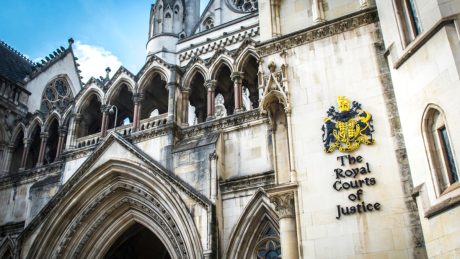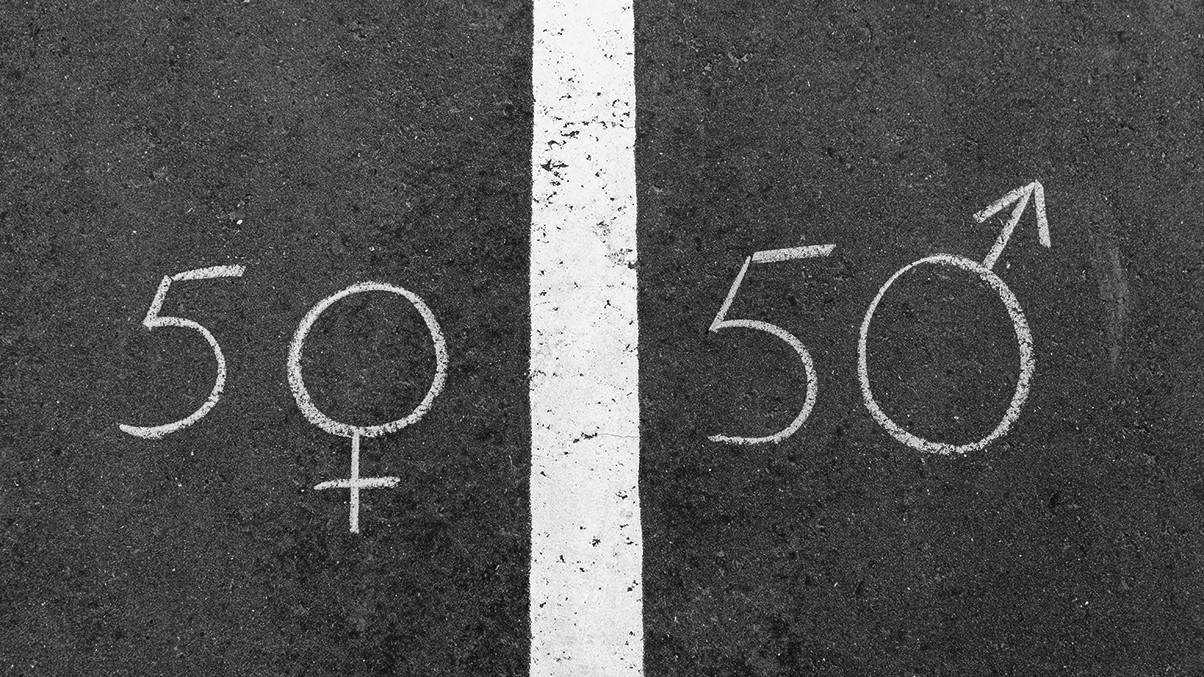Stewarts’ Divorce and Family team (partners Sam Longworth and Lucy Stewart-Gould, and associate Fiona Porter) have secured success in the Court of Appeal, with the award made against our client reduced from £45m to £25m (45%). It is believed to be the largest reduction by percentage and value of a divorce award by the Court of Appeal.
In the case of Standish v Standish, Stewarts instructed Tim Bishop KC and Tom Harvey of 1 Hare Court. They represented the husband at both first instance in the High Court and in the Court of Appeal.
The case considered fundamental family law concepts of matrimonialisation, the proper application of the sharing principle, fairness and the appropriate treatment of pre-marital wealth.
The Court of Appeal’s decision provides an essential guide to the law for cases involving non-marital wealth. It makes clear that source and endeavour are the key factors in determining a fair distribution of the assets and that ‘sharing’ arises due to endeavour in the marital partnership.
The court found that the wife’s case – that ownership or title should be seen as the determinative factor (in circumstances where the assets created by the husband prior to the marriage were held in her name at the time of the divorce) – was discriminatory and wrong. Her sharing entitlement was reduced on the husband’s cross appeal by close to half of that awarded at first instance.
As no ‘needs’ assessment was carried out by the High Court (it being a point of legal principal that if someone’s reasonable needs cannot be met from their sharing entitlement, the court can increase the award), the Court of Appeal has returned the case to the High Court for a ‘needs’ assessment, if the parties are now unable to reach agreement.
Therefore, if the wife wishes to pursue matters to increase her award beyond her sharing entitlement as found by the Court of Appeal of £25m, she will need to persuade a High Court Judge that £25 million is insufficient to meet her reasonable ‘needs’. The husband argued at first instance that the wife’s needs, very generously provided for, amounted to c.£18m, and therefore very well within the £25m he had proposed she receive at the time (and as now awarded by the Court of Appeal).
The judgment has received extensive media coverage, with our team quoted in publications including The Times, Bloomberg and the Daily Express.
Background
The husband had a highly successful career in the financial services industry, and generated the vast majority of his very significant asset base prior to the parties’ relationship. Both parties had been married previously. They began cohabitating in 2004, leading into their marriage in 2005. They have two children together and lived in Switzerland and Australia before moving to England in 2010.
The husband retired in 2007. The wife was a homemaker throughout the parties’ relationship. Up until 2017, all of the husband’s wealth, aside from two joint bank accounts and the former matrimonial home (a c.£20m property funded by the husband’s wealth but purchased in the joint names of the parties), was held in his sole name.
In 2017, as part of a tax planning exercise the husband transferred c.£77 million to the wife by agreement with the intention and expectation that the wife would settle the transferred assets into a trust for the benefit of their children. The wife did not transfer the assets into trust but instead commenced divorce proceedings in April 2020, at which point the husband’s assets remained held in her name.
At the time of the first instance hearing in May 2022, the total value of the assets was approximately £130m, of which the 2017 transferred assets represented c.£80m.
High Court decision
Mr Justice Moor heard the case at first instance.
The husband argued successfully that the non-matrimonial wealth he brought into the marriage was a magnetic feature of the case.
The wife argued that the marriage was a partnership marriage, such that there was an agreement between the parties that all wealth was to be treated as joint, despite its provenance. She further argued that the assets transferred to her in 2017 were her separate property, and suggested that the court was only able to share them with the husband because she had conceded that could happen. Had she not done so, her position was that she should be allowed to retain the assets in their entirety (£80m) plus a 50% share of all other assets.
Mr Justice Moor found that the effect of the 2017 transfer to the wife was that the transferred assets became ‘matrimonial property’. The wife’s arguments that they became her separate property were rejected. Mr Justice Moor further rejected the wife’s argument that ‘matrimonial property’ must be divided equally. He agreed with the husband that the pre-marital source of the assets was a significant consideration. Mr Justice Moor decided that, overall, the appropriate division of the 2017 transferred assets was 40% to the wife and 60% to the husband.
The wife had run a separate argument that Australian farmland owned by the husband since his first marriage (and acquired in 2002) should also be treated as marital property to be shared, notwithstanding it has always been held in the husband’s sole name and the parties had only ever holidayed at the farm on a small number of occasions. Mr Justice Moor rejected the wife’s evidence and found the land to be non-matrimonial in nature.
In addition, the wife asserted that she had been integral to the development of the husband’s pre-marital farming business and had worked on this farmland during the parties’ relationship. As part of separate tax planning in 2017, shares in this business were transferred to the wife. As with the rest of the 2017 transferred assets, Mr Justice Moor found the business to have been matrimonialised, but ordered the wife’s shares in the farming business to be transferred to the husband, awarding her 40% of the value despite her 50% shareholding to account for the pre-marital source of the asset.
On this basis, the overall split of the total assets was 34% to the wife and 66% to the husband. As a cross-check Mr Justice Moor confirmed he was satisfied this was an appropriate division, which reflected the parties’ contributions and all the other circumstances of the case. This award provided for the wife to receive a sum of £45m. The judge did not, however, conduct a full ‘needs’ assessment, finding that her ‘sharing entitlement’ at this level meant that such an assessment was unnecessary.
This judgment was appealed by the wife, and, thereafter, cross appealed by the husband.
Grounds of appeal
The wife appealed on the basis that Mr Justice Moor was wrong to find:
- That the 2017 assets had been matrimonialised.
It was the wife’s position that these assets were her separate property. The wife observed that Mr Justice Moor had treated the husband’s solely held property (the farmland) to be his ‘separate property’ (and therefore excluded from sharing) and, as such, should have treated the 2017 transferred assets as her separate property. Her autonomy should be respected. She maintained her argument that it was purely through her concession to divide the assets (which were ‘her’ assets) 50/50 that allowed them to be divided equally, and accordingly there could be no basis for a departure from anything other than equal sharing of these funds which were only available for sharing because she had allowed it.
In respect of the farming business, Mr Justice Moor should not have awarded her only 40%.
- That no marital value should be ascribed to the maintenance and improvement in the value of the farmland during the marriage.
The wife argued that Mr Justice Moor should have found that the farmland was a matrimonial asset because, although it was owned by the Husband prior to the parties’ marriage, the parties had holidayed there. It had been maintained, improved and added to during the marriage.
The wife was granted leave to appeal in December 2022.
In March 2023 the husband was granted leave to cross-appeal on the basis that:
- Mr Justice Moor was wrong to conclude that the assets transferred in 2017 were matrimonialised. Because of their provenance long before the marriage, these assets should have been treated as non-matrimonial wealth and the wife’s award should instead be assessed by reference to her needs.
- The judgment did not adequately reflect the scale of the husband’s unmatched contribution in the form of his pre-marital wealth generated by his pre-marital endeavour.
- Mr Justice Moor failed to consider the substantial passive economic growth on this pre-acquired wealth.
The appeals were heard by Lord Justice Moylan, Lady Justice King and Lord Justice Phillips for two days in the Court of Appeal in November 2023. The hearing was live streamed with a recording available here.
Court of Appeal decision
In a unanimous judgment the Court of Appeal dismissed the wife’s appeal and allowed the husband’s cross appeal.
The transfer of the 2017 assets by the husband did not render them subject to the sharing principle in their entirety. Rather, the key aspect was the source of those assets and the fact that the endeavour which had generated them was pre-marital. In this respect Mr Justice Moor was right to find that source was the magnetic feature of the case.
However, the Court of Appeal found that Mr Justice Moor had then erred in how he applied that conclusion to the division of the 2017 assets. Instead of allowing an arbitrary (and overly generous) 40%, he should have assessed what of those 2017 assets could broadly be attributed to the endeavour during the marriage (ie in the short time prior to the husband’s retirement) and applied the sharing principle only to that portion.
Taking this approach together with the wife’s share of the joint property, the Court of Appeal assessed the wife’s sharing claim to be £25 million. They found the wife’s arguments to be disparate and discriminatory in so far as they focussed on title as the determinative factor. With regret, they felt it necessary to remit the case to the High Court for a needs assessment as this cross check had not been undertaken in the first instance.
Future consideration and Stewarts’ leading Court of Appeal authorities
Standish v Standish is the essential guide to the law for cases involving non-marital wealth. It makes clear that source and endeavour are the key factors in determining a fair distribution of the assets and that ‘sharing’ arises as a result of shared endeavour in the marital partnership; title is no guide to fairness.
The Court of Appeal decision also references the successful Stewarts appeal in the case of XW v XH, dealing with fairness as between spouses in respect of very significant wealth generated during the course of a marriage. Our article in respect of that decision can be found here.
Sam Longworth, lead partner for Mr Standish, comments:
“The Court of Appeal’s judgment is thorough and provides clarity in respect of aspects which have created significant amounts of dispute and litigation between divorcing couples in recent years. It is very much hoped that Mrs Standish will not pursue arguments that her reasonable needs cannot be met with the £25m she has been awarded, so that the parties can now move forward with their lives. Whilst there are a very small number of cases in which that situation may exist (where for example an individual has a very high profile and security requirements and/or a need to run homes across the world), this is not one of them.
If that is pursued, it will raise very interesting legal arguments as to whether or not the ‘needs’ cross check was ever intended to be used in cases where the court’s determination of fairness under the ‘sharing’ principle leaves someone with wealth of £25m. There is a clear legal distinction between what someone reasonably needs, and what they may want.”
Lucy Stewart-Gould, second partner for Mr Standish, comments:
“The team at Stewarts are pleased to have secured for our client a judgment which properly reflects the fact that the substantial wealth in this case was generated almost entirely by his work prior to the marriage. The Court of Appeal has confirmed that endeavour and source of wealth are central considerations in such cases. Title is no guide to a fair outcome and, indeed, risks being discriminatory – as has long been recognised in this jurisdiction.”
Read the judgment in full here.
You can find further information regarding our expertise, experience and team on our Divorce and Family pages.
If you require assistance from our team, please contact us or alternatively request a call back from one of our lawyers by submitting this form.
Subscribe – In order to receive our news straight to your inbox, subscribe here. Our newsletters are sent no more than once a month.








